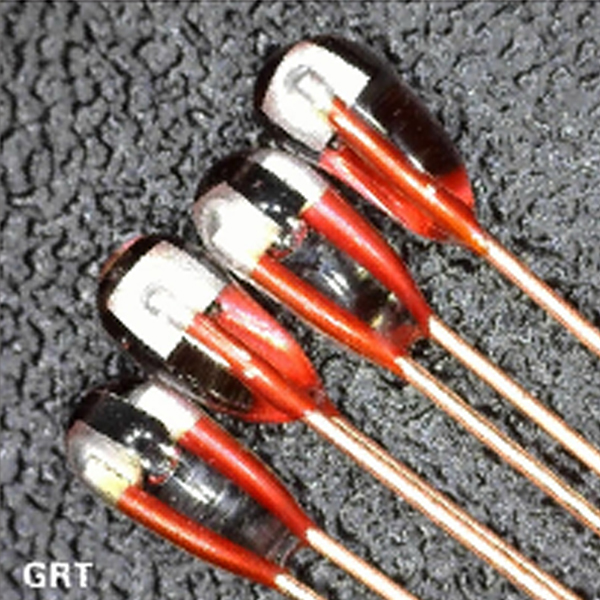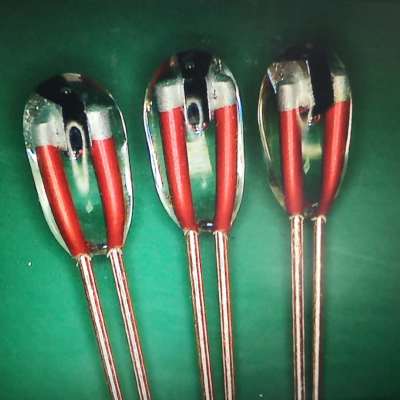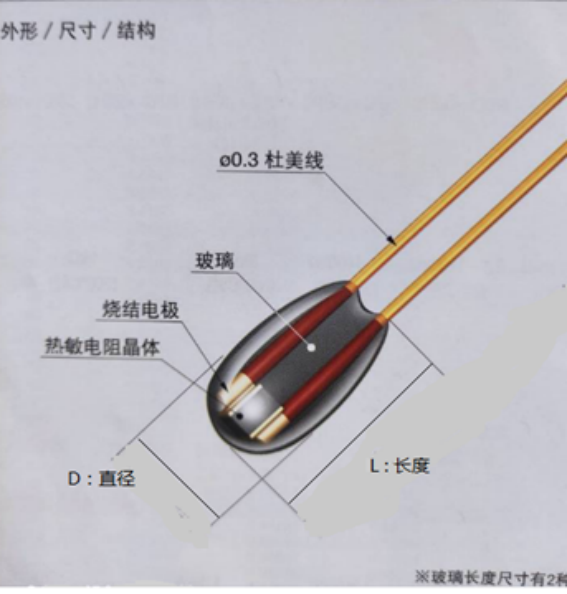In industries where accuracy and stability are critical, temperature sensors must withstand demanding environments while delivering consistent performance. Glass encapsulated thermistors have become a trusted choice for engineers and product designers who require precise temperature monitoring in applications ranging from automotive systems to medical devices.
What Is a Glass Encapsulated Thermistor?
A glass encapsulated thermistor is a temperature-sensitive resistor protected by a sealed glass coating. This design shields the thermistor element from moisture, mechanical stress, and corrosive environments, allowing it to operate reliably in extreme temperatures and challenging conditions. The encapsulation not only prolongs service life but also ensures measurement stability over time.
The resistance of a thermistor changes predictably with temperature. In most cases, Negative Temperature Coefficient (NTC) thermistors are used, meaning their resistance decreases as temperature increases. The glass enclosure helps maintain the thermistor’s performance by preventing oxidation and drift, even in high-humidity or high-vibration applications.
Why Choose Glass Encapsulation Over Other Designs?
Compared to epoxy-coated thermistors, glass encapsulated types offer enhanced durability, thermal stability, and long-term accuracy. While epoxy versions may be suitable for general use, glass encapsulated models are designed for:
Extended operating temperature range – often from -55°C to +300°C.
Resistance to environmental degradation – moisture, chemicals, and oils have minimal effect.
High mechanical strength – the glass coating protects against vibration and mechanical stress.
Long-term stability – reduced drift and reliable calibration over years of operation.
This makes them a preferred choice in industries where downtime or inaccurate readings could lead to significant losses or safety risks.
Glass Encapsulated NTC Thermistor
Key Industrial Applications
1. Automotive Systems
Glass encapsulated thermistors are widely used in engine management, battery monitoring, and climate control systems. Their ability to operate in high-temperature, high-vibration environments makes them ideal for sensors located in engine bays and exhaust systems.
2. Medical Equipment
In diagnostic devices, patient monitoring systems, and laboratory instruments, accuracy and reliability are essential. Glass encapsulated thermistors deliver stable readings even after repeated sterilization processes or prolonged exposure to fluids.
3. HVAC and Refrigeration
Heating, ventilation, and cooling systems rely on precise temperature measurements to maintain efficiency. These thermistors perform consistently in both freezing and high-humidity environments, reducing maintenance needs.
4. Industrial Process Control
In manufacturing, chemical processing, and power generation, glass encapsulated thermistors help regulate temperatures in critical operations. They are particularly valued in situations where sensors must be embedded in equipment that runs continuously.
5. Consumer Electronics and Appliances
From ovens to coffee machines, these thermistors ensure products function safely and efficiently. The glass encapsulation prevents damage from steam, spills, and high heat.
Advantages for OEMs and Engineers
When sourcing temperature sensors for high-precision applications, OEMs and engineers often prioritize long-term reliability, compact design, and stable calibration. Glass encapsulated thermistors meet these requirements, offering:
Miniaturization – small size for integration into tight spaces.
Fast response time – enables quick detection of temperature changes.
Low resistance drift – maintains calibration across product lifespans.
Wide selection – available in various resistance values and tolerances to match specific designs.
These qualities not only improve product performance but also reduce the risk of costly service issues.
Horle Glass Encapsulated NTC Thermistor
Horle’s Glass Encapsulated NTC Thermistor (View Product) is engineered for industrial-grade performance. Key features include:
- Operating range: -55°C to +300°C
- High thermal stability with minimal resistance drift
- Excellent insulation resistance to prevent leakage currents
- Moisture-proof and corrosion-resistant glass enclosure
- Available in custom resistance and tolerance options
These sensors are suitable for automotive, HVAC, medical, and industrial control systems, ensuring accuracy in environments where failure is not an option.
Selecting the Right Glass Encapsulated Thermistor
When choosing a thermistor, consider the following factors:
Operating temperature range – ensure it matches your application’s extremes.
Resistance value at 25°C (R25) – the baseline resistance for calibration.
Tolerance – tighter tolerances yield more precise readings.
Thermal time constant – impacts how quickly the sensor responds to temperature changes.
Environmental resistance – moisture, chemicals, and mechanical stress tolerance.
Partnering with a manufacturer like Horle, with expertise in designing and producing high-precision thermistors, ensures that the chosen component meets both performance and durability requirements.
Conclusion
Glass encapsulated thermistors are an essential component in many industrial and commercial applications, offering unmatched stability, accuracy, and environmental resistance. For businesses that require dependable temperature sensing under extreme conditions, they present a cost-effective, long-lasting solution.
By integrating Horle’s glass encapsulated thermistors into your products, you gain access to a proven technology supported by dedicated engineering expertise. To discuss specifications or request samples, contact Horle today.









